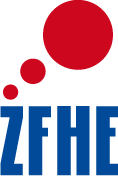Wir freuen uns im Herausgeber:innenteam für die Ausgabe 19/1 der Zeitschrift für Hochschulentwicklung mitwirken zu können „Digitale Kompetenzen – Zur Rolle dieser „Future Skills“ im Hochschulkontext: Definition und Bedeutsamkeit, Messung und Förderung“
Zum Themenschwerpunkt:
Digitalisierung und digitale Kompetenzen sind Schlagworte, die mittlerweile in (fast) allen Lebensbereichen eine Rolle spielen. So identifizierte der Stifterverband für die Deutsche Wissenschaft e.V. in seinem 2021 herausgegebenen future skills paper 21 Kompetenzen in den vier Kategorien: „Klassische Kompetenzen“, „Digitale Schlüsselkompetenzen“, „Technologische Kompetenzen“ und „Transformative Kompetenzen“. (STIFTERVERBAND FÜR DIE DEUTSCHE WISSENSCHAFT, 2021, S. 2). Aus dieser Perspektive sind digitale Kompetenzen also ein zentraler Teil der sogenannten future skills. Hierzu wird erläutert: „Auch digitale Schlüsselkompetenzen (zum Beispiel Digital Literacy) […] bleiben enorm wichtig und werden in den nächsten fünf Jahren noch weiter an Bedeutung gewinnen.“ (ebd., S. 2). Das wirft die Frage auf, inwiefern dies für die Lehre an Hochschulen relevant ist (vgl. ebd., S. 3), sowohl in Bezug auf Studierende als auch auf Lehrende und weiteres (die Lehre und das Lernen unterstützendes) Hochschulpersonal.
Der ganze Call ist hier zugänglich – Einreichfrist ist jedenfalls der 27.10.2023. Wir freuen uns über viele Einreichungen und sollte es Fragen geben, beantworten wir diese gerne 🙂


